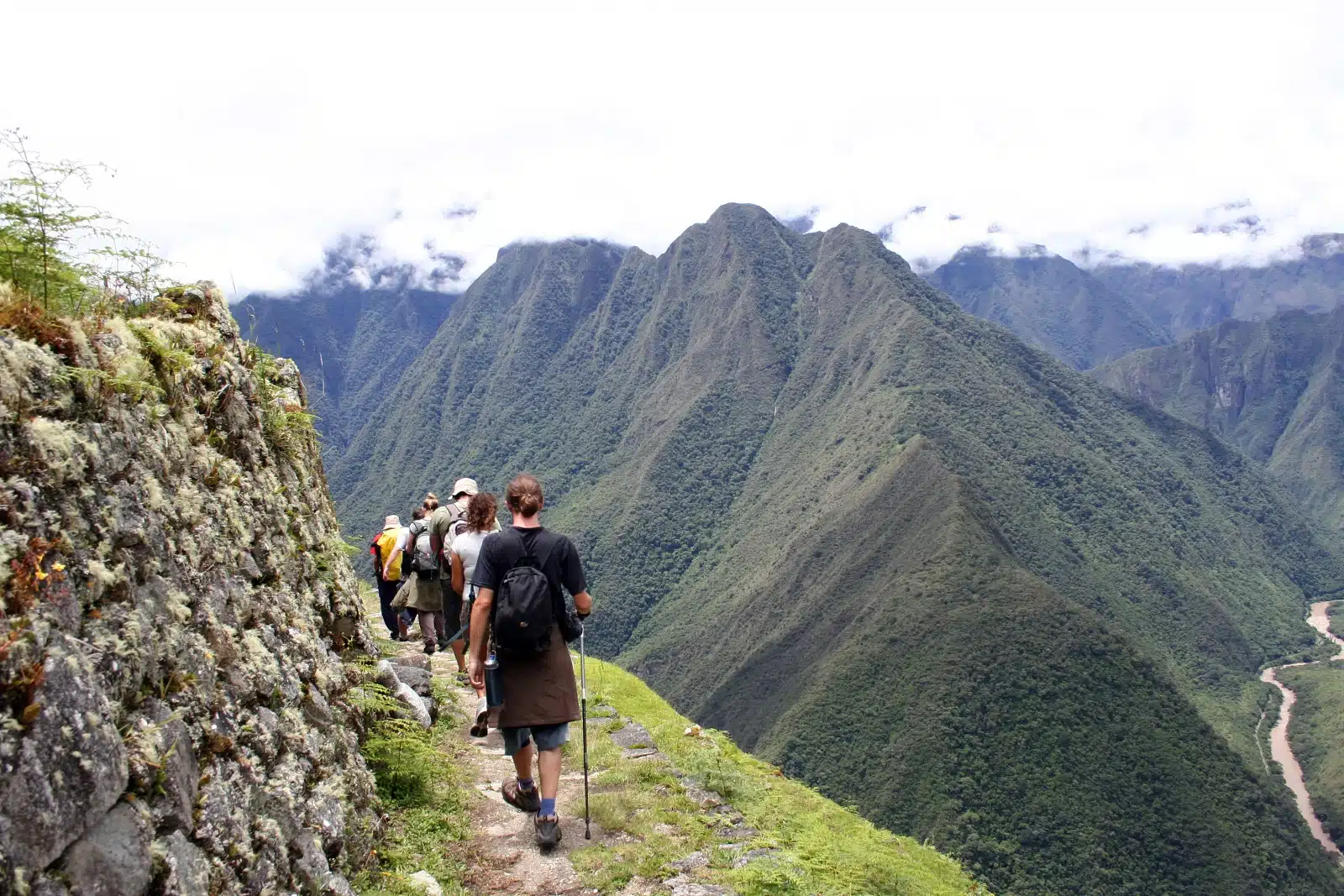In recent years, the phenomenon of over-tourism has become a pressing concern for many of the world’s most beloved destinations. Iconic cities, natural wonders, and historic sites have all suffered from the strain of excessive visitor numbers, leading to environmental degradation, diminished quality of life for local residents, and a less authentic experience for travelers themselves. This guide seeks to illuminate the issue of over-tourism and propose sustainable alternatives that offer enriching experiences while preserving the integrity of destinations. Travelers can contribute to a more sustainable and equitable form of tourism by choosing these alternatives.
1. Community-Based Tourism in Nepal

Image Credit: Shutterstock / Yongyut Kumsri
Nepal, known for its towering peaks and rich cultural heritage, has experienced the double-edged sword of tourism’s economic benefits and the challenges of over-tourism in areas like Everest Base Camp. Community-based tourism initiatives in lesser-known regions, such as the Tsum Valley or the Kanchenjunga Conservation Area, offer a sustainable alternative. These initiatives alleviate the pressure on overcrowded trekking routes and distribute tourism’s economic benefits more evenly among local communities. Travelers have the opportunity to engage directly with local cultures, traditions, and daily life in a manner that respects the environment and local heritage.
Insider’s Tip
Opt for homestays or community-run lodges to deepen your cultural immersion and ensure your visit benefits the local economy directly.
2. Regenerative Travel in Costa Rica

Image Credit: Shutterstock / Galyna Andrushko
Costa Rica, a pioneer in eco-tourism, has begun embracing the principles of regenerative travel, which seeks to leave destinations better than they were found. Beyond merely minimizing impact, regenerative travel in Costa Rica involves participating in conservation projects, supporting reforestation efforts, and engaging with education initiatives that benefit both the environment and local communities. Destinations like the Osa Peninsula, where eco-lodges and conservation projects abound, offer travelers a chance to contribute positively to the biodiversity and well-being of the region.
Insider’s Tip
Choose accommodations and tour operators certified by the Costa Rican Tourism Board for their commitment to sustainability and positive impact.
3. Slow Travel in the Scottish Highlands

Image Credit: Shutterstock / JanTrautscholdPhotography
The Scottish Highlands, with their dramatic landscapes and rich history, have faced challenges from the surge in visitors seeking iconic photo opportunities. Slow travel, characterized by longer stays and a deeper engagement with local culture and nature, presents a sustainable alternative. By spending more time in one location, travelers reduce their carbon footprint, contribute significantly to the local economy, and gain a more nuanced understanding of the region. Activities like hiking ancient trails, participating in local conservation efforts, and learning traditional crafts offer meaningful ways to connect with the Highlands beyond the surface level.
Insider’s Tip
Explore the region’s lesser-known paths and villages to spread the benefits of your visit and discover the hidden gems of the Highlands.
4. Alternative Destinations in Italy

Image Credit: Pexels / nertila kabashaj
Italy, particularly Venice and Rome, epitomizes the challenges of over-tourism. Seeking out alternative destinations within Italy can alleviate pressure on these hotspots while offering equally enriching experiences. Regions like Puglia, Basilicata, and the Dolomites offer stunning landscapes, rich cultural experiences, and exquisite cuisine without crowds. Travelers can enjoy a more relaxed pace, authentic interactions with locals, and the discovery of Italy’s diverse regional identities.
Insider’s Tip
Visit during the shoulder season to enjoy mild weather and fewer tourists, enhancing the sustainability of your travel.
5. Eco-Safaris in Zambia

Image Credit: Shutterstock / paula french
The popularity of safaris in Africa has led to concerns about the environmental impact on wildlife and ecosystems. Zambia offers an alternative with its commitment to low-impact, eco-friendly safaris. Parks like South Luangwa and Kafue are known for their sustainable tourism practices, including walking safaris and small-scale, eco-conscious lodges that minimize their footprint while maximizing the visitor experience. This approach supports wildlife conservation and provides a more intimate and authentic safari experience.
Insider’s Tip
Engage with conservation programs offered by lodges to understand and contribute to the preservation of Zambia’s unique wildlife and habitats.
6. Cultural Exchanges in Japan

Image Credit: Pexels / Teddy Yang
Japan’s popular destinations, such as Kyoto and Tokyo, have experienced the effects of over-tourism. Cultural exchange programs in less-visited regions offer a sustainable alternative, allowing travelers to experience Japan’s rich culture and traditions in a more intimate setting. Programs might include tea ceremony workshops, traditional crafts, or agricultural experiences, providing a deeper understanding of Japanese life and supporting rural economies.
Insider’s Tip
Seek out programs that offer stays in traditional accommodations, such as ryokans or farmhouses, to deepen your cultural immersion.
7. Responsible Marine Tourism in the Philippines

Image Credit: Shutterstock / littlesam
The Philippines, with its stunning marine biodiversity, has seen the impact of over-tourism on its coral reefs and marine life. Responsible marine tourism initiatives focusing on small-group, eco-conscious snorkeling and diving experiences offer a way to experience the Philippines’ underwater beauty without contributing to its degradation. Operators committed to responsible practices ensure their activities do not harm the marine environment and often contribute to conservation efforts.
Insider’s Tip
Choose operators that limit the number of participants and provide thorough briefings on minimizing impact while snorkeling or diving.
8. Off-the-Beaten-Path Trekking in Peru

Image Credit: Shutterstock / J Duggan
Machu Picchu’s popularity has led to concerns about over-tourism and its impact on the site and local communities. Peru offers numerous alternative trekking routes that provide breathtaking landscapes and cultural experiences without the crowds. Routes like the Choquequirao Trek or the Ausangate Circuit offer challenging treks through stunning Andean scenery, with opportunities to engage with local communities and learn about Incan history and culture.
Insider’s Tip
Consider treks that involve community visits or homestays to enrich your experience and support local economies.
9. Sustainable City Tourism in Scandinavia

Image Credit: Shutterstock / olgagorovenko
Scandinavian cities, known for their high quality of life and environmental consciousness, offer models for sustainable city tourism. Cities like Copenhagen, Stockholm, and Oslo encourage visitors to engage with their sustainability initiatives, from green transportation options like biking and electric ferries to eco-friendly accommodations and restaurants focusing on local, organic produce. This approach allows travelers to enjoy urban experiences that support the cities’ sustainability goals.
Insider’s Tip
Utilize the cities’ extensive bike-sharing programs to explore efficiently and sustainably.
10. Agro-Tourism in Greece

Image Credit: Shutterstock / bzzup
Greece, facing the challenges of over-tourism in islands like Santorini and Mykonos, offers agro-tourism as a sustainable alternative. This form of tourism, focusing on agricultural life and traditions, allows travelers to participate in organic farming, traditional cooking classes, and wine tastings. It provides a deeper connection to the Greek landscape and culture, supports rural economies, and promotes sustainable agricultural practices.
Insider’s Tip
Choose accommodations on working farms or vineyards to fully immerse yourself in the agro-tourism experience.
The Bottom Line
As travelers, our choices have profound impacts on the destinations we visit. By opting for sustainable alternatives to over-touristed sites, we can mitigate our impact, support local economies, and enjoy more meaningful and enriching experiences. The destinations and activities highlighted in this guide offer a glimpse of the possibilities for responsible travel that respects the environment and local communities. As you plan your travels, consider these alternatives as opportunities to contribute to a more sustainable and equitable world.
More From The Green Voyage
Top 10 Trending Travel Destinations 2024
6 Essential Banking Apps for International Travel – Managing Your Finances on the Go Traveling With Kids – 10
Tips to Create Memorable Family Holidays
The post The Impact of Over-Tourism – Finding 10 Sustainable Alternatives 2024 first appeared on The Green Voyage.
Featured Image Credit: Shutterstock / Matyas Rehak.
For transparency, this content was partly developed with AI assistance and carefully curated by an experienced editor to be informative and ensure accuracy.
Tips for Trip Success
Book Your Flight
Find an inexpensive flight by using Kayak, a favorite of ours because it regularly returns less expensive flight options from a variety of airlines.
Book Your Hotel or Special Accommodation
We are big fans of Booking.com. We like their review system and photos. If we want to see more reviews and additional booking options, we go to Expedia.
You Need Travel Insurance!
Good travel insurance means having total peace of mind. Travel insurance protects you when your medical insurance often will not and better than what you get from your credit card. It will provide comprehensive coverage should you need medical treatment or return to the United States, compensation for trip interruption, baggage loss, and other situations.Find the Perfect Insurance Plan for Your Trip
